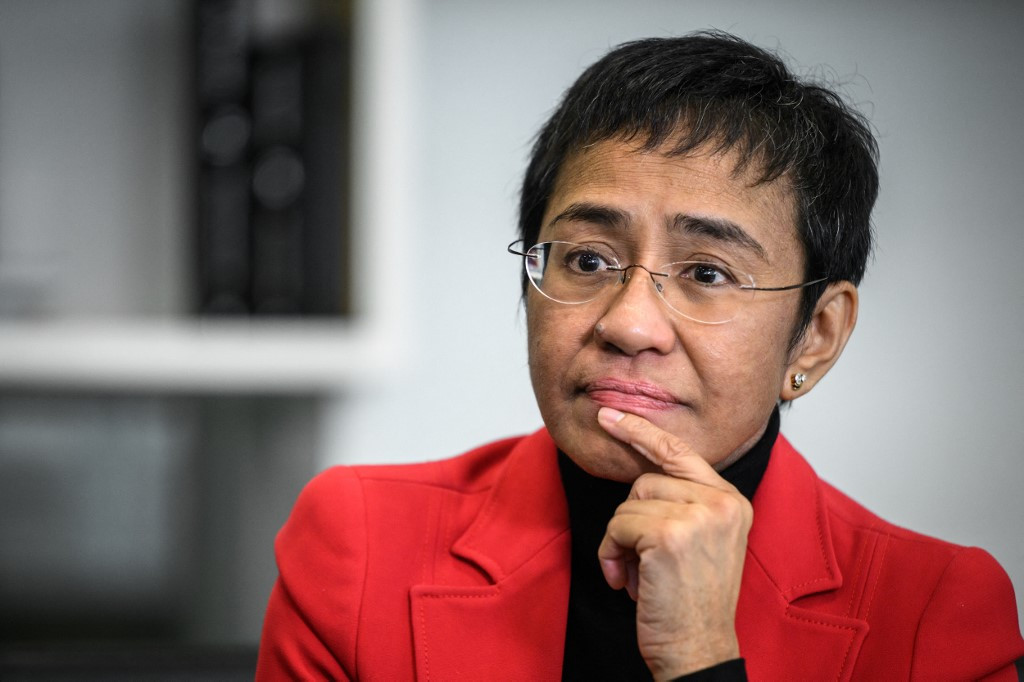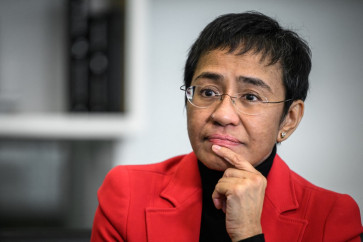Popular Reads
Top Results
Can't find what you're looking for?
View all search resultsPopular Reads
Top Results
Can't find what you're looking for?
View all search resultsSocial media threatening press freedom: Nobel laureate
The situation for media workers around the world at the moment is "bleak", according to Philippine journalist and Nobel Peace Prize laureate, Maria Ressa.
Change text size
Gift Premium Articles
to Anyone
T
he rise of social media has allowed dangerous propaganda to flourish and left professional journalists facing constant threat of attack, according to Philippine journalist and Nobel Peace Prize laureate, Maria Ressa.
The situation for media workers around the world at the moment is "bleak", Ressa told AFP in an interview, saying much of the blame lies with the dramatic shift in the way information is distributed.
Speaking on the sidelines of an event in Geneva on Tuesday to mark World Press Freedom Day, the 58-year-old co-founder of the news website Rappler highlighted how social media had made it far easier to spread propaganda, reject facts and change historical realities.
She pointed to the Philippines, which appears set next week to hand the presidency to Ferdinand Marcos Jr, whose dictator father and namesake presided over massive plunder and human rights abuses in the country.
"He looks set to win, and the only way that is possible is because history shifted in front of our eyes," Ressa said.
Marcos Jr's links to his father have made him one of the nation's most polarising politicians.
But he has benefitted from a deluge of fake and misleading posts on social media platforms targeting a largely young electorate with no memory of the corruption, killings and other abuses committed during the elder Marcos's 20-year rule.



















